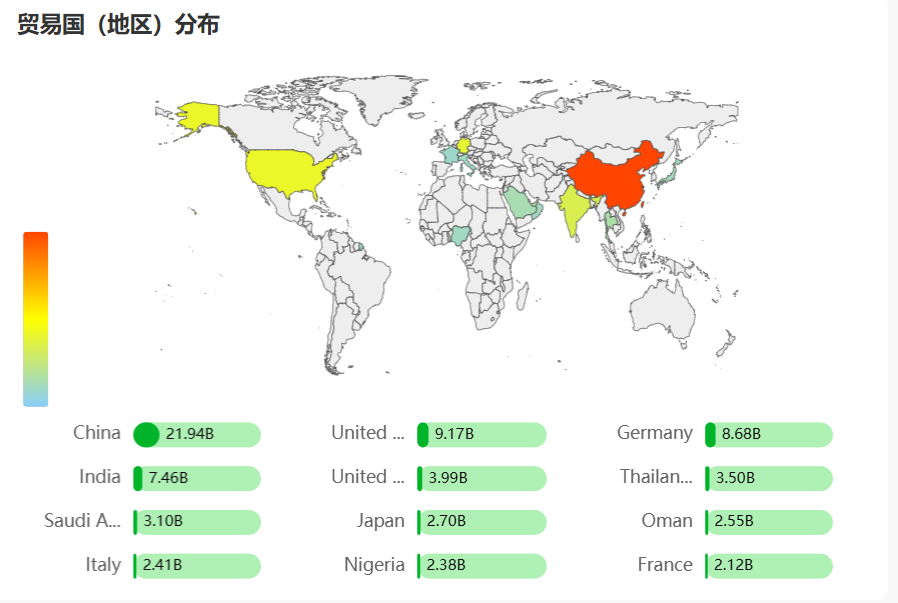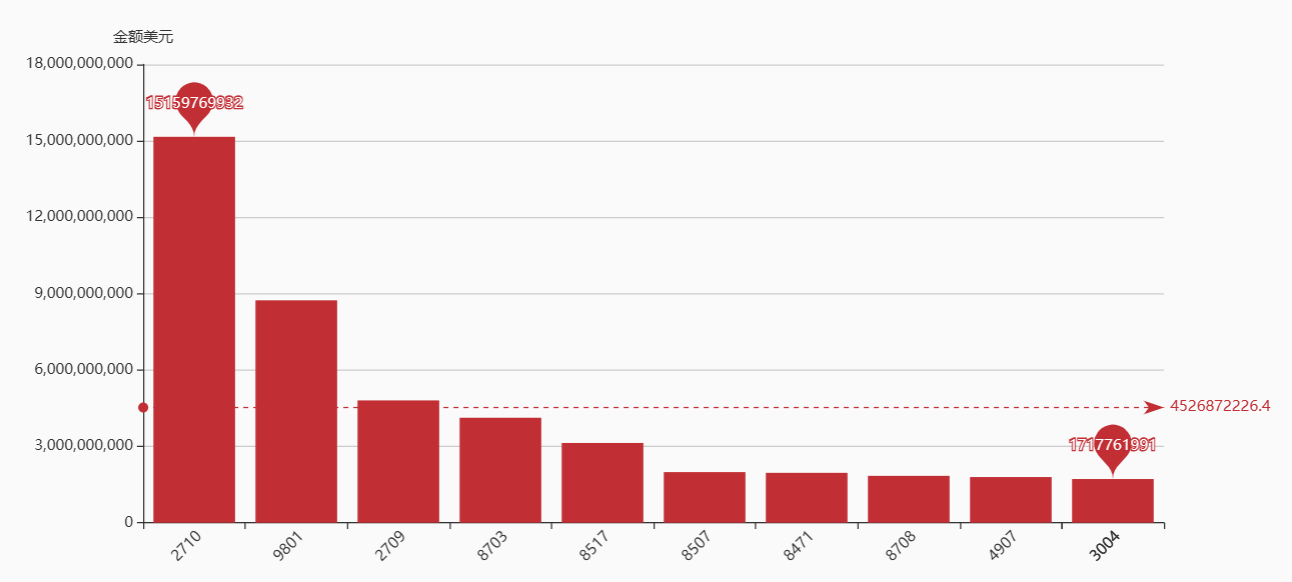Nigeria's trade data reflects its economic engagements in global commerce. As of recent reports, Nigeria has experienced a trade deficit, with total exports amounting to approximately $47.23 billion and imports at about $52.07 billion. The country's trade activities include a diverse range of products, from mineral fuels and oils to agricultural products. Nigeria's trade policies are also characterized by an average tariff rate of around 12.20%, indicating the level of trade regulation. Understanding Nigeria's trade data is crucial for grasping the nuances of its economic interactions on a global scale.
Register to viewComprehensive Trade Flow Analysis
Market Demand Identification
Competitive Intelligence
Supply Chain Optimization
Regulatory Compliance
Economic Health Indicator

In 2023, Nigeria’s top trading partners for exports were:
Netherlands: $7.6 billion (12.6% of total Nigerian exports)
Spain: $5.7 billion (9.4%)
India: $5.1 billion (8.4%)
United States: $4.5 billion (7.5%)
Indonesia: $3.97 billion (6.5%)
France: $3.96 billion (6.5%)
Canada: $3.6 billion (5.9%)
Ivory Coast: $2.44 billion (4%)
United Kingdom: $2.38 billion (3.9%)
Italy: $2.35 billion (3.9%)1.
For imports, the main partners were:
China
India
United States
Belgium
Netherlands
In 2023, Nigeria’s top trade industries based on export value were:
Mineral fuels including oil: $55.6 billion (91.6% of total exports)
Fertilizers: $994.7 million (1.6%)
Oil seeds: $797.5 million (1.3%)
Cocoa: $759 million (1.3%)
Fruits and nuts: $328.2 million (0.5%)
Aluminum: $280.5 million (0.5%)
Ships and boats: $184.7 million (0.3%)
Copper: $178.6 million (0.3%)
Ores, slag, ash: $158.7 million (0.3%)
Machinery including computers: $147.6 million (0.2%)
